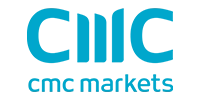Table Of Contents
- Best FOREX Brokers for Beginners in 2026:
- What Is FOREX and Why Do We Need a Broker?
- How to Open a FOREX Trading Account and Start Trading FOREX
- Why Regulation and Licensing is Important
- How to Start Learning about FOREX Trading
- What You Need to Know About Leverage and Stop Outs
- Leverage
- Stop Out
- How Much Money Do You Need to Trade FOREX?
- Which Currency Pair Should You Start Trading With?
- How to Choose the Best FOREX Broker for Beginners
- Commissions and Fees
- Tradable Assets and Instruments
- FOREX Trading Customer Service
- Trading Platforms, Tools, and Features
- Is FOREX Trading Profitable?
- How to Avoid Scam FOREX Brokers
- Who is Arincen and What Do We Do?
- The Bottom Line
- Methodology
Top FOREX Brokers for Beginners to Try In 2026
With many years of meticulous FOREX broker testing, Arincen stands out as a voice of authority. Our analyses, shaped by exhaustive data collection, are trusted by many. Each year, we gather 120 data points from more than 100 brokers. Our team of more than 20 people collaborate extensively to produce high-quality broker reviews like this one. For a detailed explanation of how we test brokers, navigate to the bottom of this article.
Note: We earn money by selling ads, placements, or through partnerships with some companies we have agreements with, learn more.
For beginners choosing a FOREX broker in 2026, the fundamentals remain the same. You want your broker to be well-regulated, managed properly, have powerful trading platforms, and be on hand to assist you whenever necessary. Once you've checked all those boxes, you can focus on the specific items that differentiate the best FOREX brokers for beginners from each other. Here at Arincen, our goal is to help you understand the key features that make some of the best FOREX platforms for beginners stand out and others fade into the background. After a rigorous research exercise, here's our list:
Best FOREX Brokers for Beginners in 2026:
ICM - Capital 91.10: Best Deposit and Withdrawal Broker
Tradeview - 90.00: Trusted broker that offers very low trading costs as well as comprehensive financial literacy materials for its clients.
XTB - 85.55: Best Customer Service Broker
IG - 85.45: Best Regulations Broker plus Convenient Platform
Saxo Bank - 80.09: Excellent Private Trading Platform
CMC Markets - 80.07: More than 9,000 Assets
ThinkMarkets - 80.05: Aimed at the Audience of Traders

ICM capital
ICM Capital is a UK-origin broker that operates worldwide. The firm provides access to diverse trading products, including FOREX, commodities, futures, and indices. ICM offers a secure and efficient trading environment by combining advanced technology with deep liquidity. The company prides itself on delivering high liquidity, tight spreads, mobile trading, and advanced technical analysis.
Why we picked ICM Capital
For its robust regulatory framework and global oversight. Its presence across multiple jurisdictions demonstrates a genuine commitment to investor protection. This foundation makes it a dependable choice for both new and seasoned traders.
| Broker Evaluation | 9.11 |
| Regulations | FCA |
| Minimum Deposit | $200 |
| Islamic Account | yes |
| Payment Methods | Bank transfer, credit card, Electronic Banks, Crypto |
| Main Branch | London |
| Customer Service | Market Opening Hours |
| Demo Account | Yes |
| Trading Platforms | MT4, MT5, C TRADER, Web Platform |
Pros
-
Segregated client funds.
-
Regulated by the UK’s FCA.
-
Long trading history from 2009.
-
More than 300,000 traders, showing trust.
-
Decent funding options.
-
No swaps.
-
MetaTrader4 (MT4) desktop and mobile download.
-
Competitive spreads
-
ECN spreads starting from zero pips.
-
Fast execution and no-requotes.
Cons
-
No proprietary platform.
-
No US services.
-
Limited cryptocurrency offerings.
-
Inactivity fees which deter casual traders.
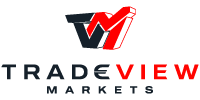
Tradeview
Tradeview Markets, the parent company of Tradeview Forex, was established in 2004 and is headquartered in the Cayman Islands. It is committed to offering a broad and accessible trading environment through ECN trading with direct access to dozens of banks and prime liquidity providers, ensuring tight spreads. The broker offers access to a wide range of financial instruments, including FOREX, indices, stocks, cryptocurrencies, and commodities.
Why we chose Tradeview
Our choice was influenced by this broker’s transparent fee structure and competitive pricing, with low spreads and clear cost disclosures. Traders benefit from predictable pricing without hidden charges. Cost efficiency is a crucial advantage in high-frequency and active trading environments.
| Broker Evaluation | 10.00 |
| Regulations | SCA |
| Minimum Deposit | $0 |
| Islamic Account | Yes |
| Payment Methods | Bank Transfer, Credit Cards, Crypto, Electronic banks, local deposits |
| Main Branch | New York, United States of America |
| Customer Service | |
| Demo Account | Yes |
| Trading Platforms | Metatrader 4, Metatrader 5, cTrader, API/FIX |
Pros
-
Variety of trading platforms, such as MT4, MT5, cTrader, and Currenex, catering to different trading preferences and strategies.
-
Provides ECN trading through its innovative Liquidity Connector®, granting direct access to over 50 banks and liquidity providers. Offers tight spreads starting from 0 pips.
-
A low minimum deposit of only $0 is required to start trading, making it accessible to a wide range of traders.
-
Offers a broad range of financial instruments, including FOREX, indices, stocks, cryptocurrencies, and commodities, thus catering to diverse trading interests.
-
Offers educational materials and a demo account, suitable for both beginners and experienced traders looking to refine their strategies.
-
Supports automated trading through the use of Expert Advisors (EA) on MT4 and MT5 platforms.
-
Regulated by CIMA, MFSA, and will soon be regulated by the UK’s Financial Conduct Authority (FCA).
-
Offers global customer service in multiple languages, catering to international traders.
-
Offers competitive leverage up to 400:1.
-
Charges no fees for deposits, making it cost-effective for traders to fund their accounts.
Cons
-
While regulated by CIMA and the MFSA, the broker is still in the final stages of becoming regulated by the tier-one FCA.
-
This means, unfortunately, that the broker currently has no way of offering compensation to affected traders if the broker goes bust. Of course, once FCA regulation is obtained, it will be mandatory for the broker to be part of the Financial Services Compensation Scheme (FSCS) where you could be entitled to compensation of up to £85,000.
-
Trades on the Innovative Liquidity Connector® account are subject to commission charges, which may add to trading costs.
-
Lacks a dedicated mobile app, relying instead on the mobile versions of its available trading platforms.
-
While offering high leverage up to 400:1 can be an advantage, it also introduces significant risks, especially for new traders.

XTB
XTB is a well-regarded broker known for its low costs, extensive asset selection, and advanced trading tools. Founded in 2002 in Poland, it has created a proprietary xStation 5 platform that offers robust features like real-time performance stats, sentiment analysis, and heat mapping. XTB's educational resources are comprehensive, catering to all skill levels with video tutorials, guides, and an accessible Trading Academy. XTB is an excellent choice for cost-conscious traders looking for diverse investment options and high-quality support.
Why we chose XTB
We chose this broker for its responsive and multilingual customer support, available across channels when assistance is needed most. Quick, professional responses reduce friction and build trader confidence. Support quality often reflects overall service reliability.
| Broker Evaluation | 8.55 |
| Regulations | FCA |
| Minimum Deposit | 0$ |
| Islamic Account | yes |
| Payment Methods | Bank transfer, Credit Card, Electronic Banks |
| Main Branch | United Kingdom |
| Customer Service | Market Opening Hours |
| Demo Account | Yes |
| Trading Platforms | MT4, xStation |
Pros
-
20-year history of operation.
-
Regulated by the FCA (UK) and CySEC in Cyprus.
-
Globally recognized, having won multiple awards.
-
Some of the lowest FOREX spreads in the market.
-
Offers protection for client accounts.
-
Emphasis on customer service.
-
Excellent support, as well as learning and research tools.
Cons
-
Does not accept US clients.
-
Number of instruments offered is average-sized.
-
No GSLO.
-
No back-testing or automated trading capabilities.
-
No social trading.

IG Group
IG Group is a highly regarded publicly traded broker that is licensed by 10 regulatory bodies, including the FCA, in its home base of the UK. It offers more than 17,000 financial assets to trade, including currencies, commodities, regular stocks, contracts for difference stocks, ETFs, indices, and cryptocurrencies. Further, it has its own state-of-the-art trading platform and offers a relatively low spread.
Why we chose IG Group
For its clear commitment to transparency and fair dealing, with open terms and client-friendly policies. Honest reporting builds trust and fosters long-term client relationships. We value brokers who prioritise clarity over complexity.
| Broker Evaluation | 8.54 |
| Regulations | FCA |
| Minimum Deposit | $250 |
| Islamic Account | yes |
| Payment Methods | Bank transfer - credit card - Electronic Banks |
| Main Branch | United Kingdom |
| Customer Service | Market Opening Hours |
| Demo Account | Yes |
| Trading Platforms | IG Trading, MT4,ProRealTime,L2 Dealer |
Pros
-
Intuitive mobile and tablet platforms.
-
Low spread costs.
-
Client education offering extensive research materials.
-
Regulated by many reputable authorities.
-
UK and EU clients get negative balance protection.
-
Financially stable and publicly-listed.
-
Rapid response to customer service queries.
-
Extensive range of trading assets.
-
Powerful social trading community.
Cons
-
U.S. clients are limited to FOREX trading only.
-
U.S. clients do not receive negative balance protection.
-
IG CFD prices can be high by industry standards.
-
Limited product portfolio of only CFD and options in many countries.
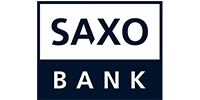
SAXO BANK
Saxo Bank is a well-established, low-risk broker based in Denmark that offers a wide range of trading services to sophisticated traders, institutions, and professional investors. It operates under strict regulatory oversight, ensuring a secure trading environment. The broker provides advanced trading platforms, including SaxoTraderPRO and SaxoTraderGO, catering to high-volume and professional traders with competitive spreads and access to over 71,000 instruments.
Why we chose Saxo Bank
For its comprehensive product range, spanning forex, commodities, indices, and popular CFDs. Such variety allows traders to build diversified portfolios within a single account. This breadth of markets supports evolving strategies and risk preferences.
| Broker Evaluation | 8.09 |
| Regulations | FCA |
| Minimum Deposit | $0 |
| Islamic Account | No |
| Payment Methods | Bank transfer, Credit Card |
| Main Branch | Copenhagen, Denmark |
| Customer Service | Market Opening Hours |
| Demo Account | Yes |
| Trading Platforms | SaxoTrader |
Pros
-
Extensive range of offerings.
-
Offers portfolio-based margin trading for pros.
-
Regulated by top regulators.
-
Excellent trading platforms.
-
Diverse account types.
-
Among the industry’s best research tools.
-
Offers protection for client accounts.
-
No inactivity fee.
-
No platform fees.
-
No minimum funding for entry-level accounts.
Cons
-
Some bonds, options, and futures fees are high.
-
With so many assets, fees can be confusing.
-
High minimum deposit for Platinum and VIP accounts.
-
Does not accept US clients.
-
No MT4 for traders who are used to the platform.
-
No GSLO.
-
No Islamic accounts.
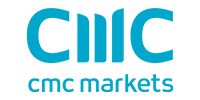
CMC MARKETS
CMC Markets is a global CFD and FOREX broker established in 1989. It is regulated by several authorities globally. The company delivers a formidable offering for traders thanks to excellent pricing, nearly 12,000 tradable instruments, and its proprietary Next Generation trading platform. The platform comes packed with quality research, innovative trading tools, and powerful charting. CMC provides traders with access to an extensive range of CFDs and spread betting across several asset classes.
Why we chose CMC Markets
This broker’s risk management tools and flexible order types stood out to us, enabling traders to tailor positions according to market conditions. Features like stop losses, take profits, and conditional orders provide strategic control. These tools are essential for disciplined trading.
| Broker Evaluation | 8.07 |
| Regulations | FCA |
| Minimum Deposit | 0$ |
| Islamic Account | No |
| Payment Methods | Bank transfer, Credit Card, Electronic Banks |
| Main Branch | United Kingdom |
| Customer Service | Market Opening Hours |
| Demo Account | Yes |
| Trading Platforms | Proprietary Platform, MT4, Web Platform |
Pros
-
Extensive range of offerings.
-
Regulated by the FCA (UK) and other top regulators.
-
Low FOREX fees.
-
Emphasis on education and customer service.
-
Great Web and mobile platforms.
-
Offers protection for client accounts.
-
Research amenities are industry leading.
Cons
-
Does not accept US clients.
-
High CFD spreads for certain indices.
-
It only offers CFD trading, so traders cannot own the underlying asset.
-
Does not support deposits and withdrawals through electronic payments.

think markets
ThinkMarkets is a multi-regulated broker with offices around the globe. The firm is primarily a CFD broker, allowing you to trade across 4,000 instruments in FOREX, futures, commodities, indices, ETFs, crypto, and stocks. With an emphasis on superior customer service, ThinkMarkets maintains round-the-clock support in several languages. It provides different trading accounts suited to individual traders' needs. This includes zero-commission accounts and access to trading guides, analysis tools, and industry news feeds.
Why we chose ThinkMarkets
We selected this broker for its fast and flexible funding options, including bank transfers and card payments. Smooth deposits and withdrawals reduce administrative delays and support efficient capital management. Accessibility of funds is an often-overlooked but essential feature.
| Broker Evaluation | 8.05 |
| Regulations | FCA |
| Minimum Deposit | $0 |
| Islamic Account | Yes |
| Payment Methods | Bank transfer - credit card - Electronic Banks - Crypto |
| Main Branch | Australia |
| Customer Service | Market Opening Hours |
| Demo Account | Yes |
| Trading Platforms | Proprietary Platform, Web Platform, MT4, MT5 |
Pros
-
Beginner assistance is offered through round-the-clock channels.
-
Spreads are as low as 0.0 pips.
-
Round-the-clock expert customer service.
-
CFD shares and indices come at no extra fee.
-
Zero broker fees for FOREX trading.
-
Technical analysis and quality market information.
Cons
-
No binary options are offered.
-
Commissions are charged for two account types.
-
Range of tradeable assets is not as wide as some competitors.
-
No US clients allowed.
There is a high degree of risk involved in trading securities like FOREX, or CFDs, which are highly complex instruments. As a trader, you could be exposed to excessive leverage, questionable broker tactics, market volatility, and limited regulatory protection. Despite your best trading techniques and risk management strategies, your efforts may not be profitable, and you could suffer losses.
What Is FOREX and Why Do We Need a Broker?
The FOREX market is the largest global financial marketplace. It is a hive of transactions powered by institutional buyers and sellers operating from all over the globe. Beginner traders like you play a small-but-important role in this worldwide marketplace. The FOREX market operates 24 hours a day and five days a week (Monday through Friday), except for international holidays. Brokerage firms give the average retail trader access to this market as they enable clients like you to buy and sell through a trading platform. There are so many other things FOREX brokers for beginners can do, like offer you leverage and provide you with educational resources. We'll explain more in the article.
How to Open a FOREX Trading Account and Start Trading FOREX
Why Regulation and Licensing is Important
Ensure that your chosen broker is regulated by a reputable authority. FOREX brokers must be regulated by the same regulators who oversee other financial assets such as crypto, commodities, and indices. If you want to read more about some of the best-regarded regulators, read our article on regulation here. Remember that you do not have to use a broker with international regulation if your broker is regulated by a good local regulator.
Be Careful of Non-Regulated Brokers
Your broker should be regulated by a reputable authority who has a history of strong oversight. Your broker does not have to be regulated by an overseas watchdog, you can also go with a regulator in your jurisdiction. To check if your broker is registered with a regulator, navigate to the regulator’s official website.
How to Start Learning about FOREX Trading
So, are you eager to get trading? Not so fast. Although this is not the primary aim of this article, we will let you know about the most important terms you will encounter as your trading journey with some of the best FOREX trading apps for beginners unfolds:
Pips
In FOREX trading, a pip is a unit of measurement for the change in value of a currency pair. It stands for “percentage in point” or “price interest point.” A pip is typically the fourth decimal place in a currency pair and is a measure of how much the value between two currencies changes. It might seem confusing at first. We'll explain later in the article when we talk about spreads.
Lot
In FOREX trading, the term “lot” refers to the standard size of a trade. It is the unit of measurement used to describe the volume or size of a FOREX trade. There are three main types of lots in FOREX trading: standard lot, mini lot, and micro lot. Be prepared to use the term, "I would like to buy three lots," or some variation of it.
Position
A position size in FOREX trading refers to the number of lots or units of a particular currency pair that a trader buys or sells in a trade. Position size is an important aspect of FOREX trading as it directly affects the potential risk and reward of a trade.
Spread
In FOREX trading, a spread refers to the difference between the bid price and the ask price of a currency pair. The bid price is the price at which a trader can sell a currency, while the ask price is the price at which a trader can buy a currency. The spread is expressed in pips, as we have mentioned.
Japanese Candlestick patterns
Japanese candlesticks, or simply “candles,” are a popular type of chart used in FOREX trading to represent price movements of a currency pair over time. A candlestick chart consists of individual candlesticks that each represent a specific timeframe, such as a minute, an hour, a day, or a week.
Each candlestick on the chart provides information on the opening, closing, high and low prices of the currency pair during that timeframe. The body of the candlestick represents the range between the opening and closing prices, while the wicks, or shadows, represent the high and low prices during that period. We've written a detailed article on Japanese candlestick patterns here.Technical and Fundamental Analysis
Technical analysis is the study of historical price and volume data to identify patterns, trends, and potential future price movements. Technical analysts use various tools and indicators, such as chart patterns, moving averages and oscillators, to analyze market data and make trading decisions. You'll get the hang of this as you gain more experience.
Fundamental analysis, on the other hand, involves analyzing economic, financial, and political factors that may influence the value of a currency or other financial instrument. This may include reading news articles to analyze such factors as interest rates, GDP, inflation, political stability, and global events that may impact the economy.
Margin Trading
Margin trading in FOREX refers to the practice of borrowing funds from a broker to trade a larger position than a trader could with their own funds. This allows traders to take advantage of market movements and potentially generate greater profits. We'll tell you more about this later in the article.
Tip for those who have no experience
At Arincen, we operate on the principle that a well-informed trader is a successful one. That’s why we’ve assembled an array of educational and research tools crafted for traders like you. Immerse yourself in our in-depth articles to understand core concepts, engage with our educational videos, and steer your trading decisions with our updated newsfeed and precision signals.
What You Need to Know About Leverage and Stop Outs
Leverage
Leverage, in simple terms, is when your broker allows you to put more money on the line by lending you some of theirs. In some jurisdictions, brokers can give you leverage as high as 500:1. This is great when you are winning but it is dangerous when you lose. Different regulators have different guiding policies on leverage. Key regulators have implemented specific rules to limit the leverage offered to retail traders as a means of consumer protection.
Here are selected leverage rules for CFDs according to some key regulators:
European Securities and Markets Authority (ESMA), Europe
ESMA caps the leverage for major pairs in FOREX trading CFDs at 30:1. This means that traders need to have a minimum of 5% margin of the total trade value.
Commodity Futures Trading Commission (CFTC), US
In the United States, CFD trading isn't permitted for retail traders. However, for related products, like futures, there are specific margin requirements set by exchanges and overseen by the CFTC.
Australian Securities and Investments Commission (ASIC), Australia
ASIC has recently implemented rules capping the leverage for CFDs for retail traders at 30:1, aligning with ESMA's restrictions.
Financial Conduct Authority (FCA), UK
The FCA has adopted rules similar to ESMA, capping leverage for CFDs at 30:1 for retail traders.
As we can see, responsible regulators closely monitor leverage levels. Leverage is a double-edged sword because you can make a lot of money, but you can just as easily become financially ruined!
Leverage, while offering handsome profits, significantly increases potential losses. Engaging in high leverage trading without a robust risk management strategy is like navigating treacherous financial waters without a safety net. Approach leverage with caution, employ sound trading strategies, and always try to develop a comprehensive understanding of market behaviors and how they affect your portfolio when you trade on leverage.
Stop Out
The term "stop out" refers to a situation where a broker automatically closes some or all of your open positions to prevent your account from going into a negative balance. This is most relevant for traders using leverage. This mechanism protects you from accruing negative balances and owing money to the broker. Make no mistake, if you are at stop out stage, things have gone badly with your trading! It's something to be avoided. The stop-out level is typically expressed as a percentage, representing the margin level at which the broker starts to close out open trades.
0% Stop Out Level:
At this level, when the margin level of the account drops to 0%, the broker will automatically close all open positions. This is the most aggressive stop out level. Essentially, as soon as the equity in the account equals the required margin, the positions get liquidated. This gives no room for your positions to recover even if the market turns in your favor immediately after reaching this level.
50% Stop Out Level:
Here, if the margin level drops to 50%, the broker will start closing out positions.
It offers a bit more flexibility compared to the 0% level. The broker will typically close the most unprofitable positions first, and if that's not enough to bring the margin level back above 50%, more positions will be closed until it's achieved.
100% Stop Out Level:
A 100% stop out level means that when a trader's equity equals the margin required for the open positions, the broker will start closing those positions. It’s important to know that this is similar to the 0% level but might be worded differently based on broker terminology.
In any case, the specific percentage and the order in which positions are closed can vary among brokers, so it's essential for traders to be aware of their broker's policy on stop out levels.
It's worth noting that while stop out procedures are meant to protect traders from negative balances, they can lead to significant losses in volatile markets if positions are closed automatically, especially if the market quickly reverses after the stop out. As such, using protective measures like stop-loss orders and not over-leveraging is always a good ploy.
How Much Money Do You Need to Trade FOREX?
Recommended Brokers
Our pricing review draws on Arincen’s independent research, where we analysed broker cost structures using both advertized rates and real-world trading data. By comparing spreads, commissions, and related fees, we aimed to reflect what traders are likely to experience. The outcome of this assessment is displayed in the table below.







| Method | Credit Card | Wire Transfer | Skrill | Neteller | Cryptocurrency | PayPal |
| Deposit fee | 0$ | $0 + Bank commission | 1.9% | 2.5% | Unavailable | 3.75% |
| Withdrawal fee | 0$ | $15 | 1% | $0 | Unavailable | 2% |
Which Currency Pair Should You Start Trading With?
How to Choose the Best FOREX Broker for Beginners
Don’t rush to open an account just because a broker advertises tight spreads or bonuses. Dig into where they’re regulated, how they safeguard client funds, and whether they offer negative balance protection. See if their trading app feels intuitive and stable. The “best” broker is the one that helps you trade confidently and sleep well at night.
Commissions and Fees
Trading fees can sometimes be difficult to track. Be sure to check how these fees compare with industry standards.Spreads: There are two main kinds of spread, one is fixed and the other is variable. The spread refers to the difference or gap between two prices, such as the bid/ask rate in a currency exchange rate. An example of a good spread is 1.4 pips for the EUR/USD (the narrower the better, this means that a spread of 1.4 pips is better than a spread of 2 pips). This article explains more about this important concept.Commission: This is nothing more than the service charge that brokers require for carrying out transactions on behalf of their clients.Rollover Fees: When you leave a trade open overnight, the broker normally charges a rollover fee for the facility of holding your trade open for that period. This is because they assume the risk of the market changing adversely.Withdrawal and Deposit Fees: Some platforms might charge fees for depositing or withdrawing funds. Pay attention to this. It's important to be aware of these and any associated limits or conditions.Subscription or Inactivity Fees: Certain platforms have monthly charges or fees for inactive accounts. Ensure you're aware of these potential costs.
To assess trading costs accurately, the Arincen research team examined broker pricing across multiple sources, combining published fee schedules with observed trading conditions. Our analysis focuses on spreads, commissions, and additional charges that impact traders in practice. You can see the consolidated findings in the table that follows.







| Spread | Commission | Swap | Islamic Account | |
| Currencies | Starting from 1.3 Pips | 0$ | No | Available |
| Stocks | Starting from 18 Pips | 0$ | Yes | Unavailable |
| Commodities | Starting from 2.3 Pips | 0$ | No | Available |
| Indices | Starting from 4 Pips | 0$ | Yes | Unavailable |
Tradable Assets and Instruments
Although you are mostly interested in FOREX for now, you may want to know what else is out there. The world of online trading offers a diverse range of financial instruments, each with its own set of opportunities and challenges:
FOREX: With the largest trading volume globally, the FOREX market allows you to speculate on the future movements of currency prices, trading pairs like EUR/USD, GBP/JPY, and many more.
Equities or Stocks: These represent ownership in a company and constitute one of the most popular avenues for retail traders, given their potential for substantial returns and the thrill of being a part of the corporate world.
Commodities: Whether it's precious metals like gold and silver, or energy commodities like oil and natural gas, commodities trading offers a chance to profit from the tangible assets that drive global economies.
Indices: This is another exciting opportunity. These are baskets of stocks representing a particular market or sector, like the S&P 500 or the Nasdaq, giving you exposure to broader market movements.
Cryptocurrencies: The relatively new kids on the block have garnered immense attention. Even the best FOREX trading apps for beginners should ideally offer you digital coins like Bitcoin, Ethereum, and countless altcoins for when you are ready to diversify to a new type of asset.
Bonds: These assets are best for those interested in fixed returns. They are debt securities that offer periodic interest to holders and return the principal amount at maturity.
Options and Futures: These derivative products allow traders to hedge against potential losses or speculate on price movements without owning the underlying asset.
As part of our evaluation process, the Arincen team gathered and cross-checked broker pricing from official documentation and live trading environments. This approach allowed us to compare spreads, commissions, and fees under actual market conditions. The breakdown of our findings is presented in the table that follows.
| Brokers | Currency pairs | Stocks | Indices | Commodities | Crypto | ETFs |
| Tradview | 80 Pairs | 5000 Shares | 10 Indices | 10 Commodity | 30 Coins | Unavailable |
| ICM Capital | 67 Pairs | 89 Shares | 17 Indices | 12 Commodity | 6 Coins | Unavailable |
| XTB | 57 Pairs | 1848 Shares | 36 Indices | 22 Commodity | 22 Coins | 135 ETFs |
| IG | 81 Pairs | 21714 Shares | 49 Indices | 39 Commodity | 11 Coins | 12858 ETFs |
| Saxo Bank | 320 Pairs | 22000 Shares | 49 Indices | 39 Commodity | 9 Coins | 6700 ETFs |
| CMC Markets | 330 Pairs | 8000 Shares | 80 Indices | 100 Commodity | 18 Coins | 200 ETFs |
| Think Markets | 46 Pairs | 3750 Shares | 15 Indices | 11 Commodity | 21 Coins | 350 ETFs |
FOREX Trading Customer Service
You must pick a brokerage firm that can provide good customer support around the clock. This most notable support includes the company representatives being easy to reach, fast and polite, which will, in turn, spare you from having to worry about problems later.
Based on in-house analysis by the Arincen team, we reviewed pricing data from both official broker websites and live market conditions. This included spreads, commissions, and trading fees observed in real use. The results of that comparison are summarized in the table below.







| Live Chat | Phone | |||
| Available | Available | Available | Available | Available |
| Quick response | Quick response | Fast | Fast | Fast |
Trading Platforms, Tools, and Features
When choosing the best FOREX trading platform for beginners, you should consider an array of features that cater to both novice and seasoned traders alike. In our experience, MT4 has become a staple in the online trading world for its user-friendliness, speed of execution and advanced tools. This platform has been around for many years, first created as a FOREX-only trading platform that has since been expanded to offer other instruments like stocks, indices, and commodities. In any event, whether you choose a broker with MT4, or your broker uses another platform, these are the elements of which you need to be aware:
Platform Accessibility is the first consideration. Whether it's web-based or a downloadable application, a top-notch trading platform should offer flexibility in terms of access.
Customization and User Interface. It's vital for traders to mold the platform according to their preferences, allowing them to set up their trading environment precisely how they want. This customization extends to
Technical Analysis Tools. The platform should be equipped with robust technical indicators to aid traders in making informed decisions.
Risk Management Tools are another pivotal aspect. Trading inherently comes with risks, and a high-quality platform should provide instruments that allow traders to set stop-losses, take-profits, and other crucial order types. For those new to the trading world,
Performance and Reliability cannot be overlooked. Beginner traders especially need a platform that operates seamlessly with minimal downtimes or glitches. This ensures a smooth trading journey, allowing them to focus on market movements rather than technical hiccups.
Learning and Support. This element is essential. The best brokers will offer platforms that are not only intuitive but also come with tutorials, guides, and responsive customer support to assist traders.
Is FOREX Trading Profitable?
How to Avoid Scam FOREX Brokers
The best way to avoid being scammed is to check that the broker you are using is regulated by a trustworthy regulator. Any broker regulated by a tier-1 regulator has had to undergo a stringent vetting of its operations.
Most scams involve criminals offering deals that are too good to be true. If the offer is scarcely believable, and the broker is putting you under pressure to trade, this is very suspicious. Other scams involve criminals creating a clone FOREX broker Website with basic functionality to dupe novice investors into thinking they are trading with a legitimate entity. Novice investors are lured to these Websites on the promise of quick wins and handsome profits. That's why the first thing you should ask your broker is, "Who are you regulated by?", quickly followed by, "Do you offer a compensation scheme if you go bust?" The sales agent should be able to answer these questions quickly and convincingly. Even then you should still do your own research.
A regulated broker adheres to a stringent set of guidelines and operational standards, designed to ensure transparency, security, and integrity in all transactions. Electing to trade with an unregulated broker amplifies the risk of financial loss, fraud, and exposure to unethical practices. For a list of the best regulators, read our article here.
Who is Arincen and What Do We Do?
The Bottom Line
Methodology
The team at Arincen collected more than 120 pieces of data covering more than 100 licensed FOREX companies. Data collection was done in three ways:
Companies’ Websites.
Other Websites that have ranked FOREX companies.
A survey questionnaire (referred to here as Survey “1”) was sent to the companies invited to participate in the exercise.
We have identified 12 criteria for our assessment, each containing several aspects and carrying its relative weight. These include licensing, deposits and withdrawals, number of assets etc.
Afterwards, we validated the data by:
Registering with FOREX companies as a secret shopper and/or as Arincen.
Survey number “2,” in which we asked these companies’ customers for important feedback and experience.
The next step saw us evaluate and rank each company, relying on the hard work of 15 Arincen employees. We were careful in ensuring the most accurate assessment possible, including considering different languages, as well as the various mobile-app operating systems, e.g., Apple, Samsung etc.
To add credibility to our research project, we sent a final and third survey (referred to here as Survey “3”) to enable participating FOREX companies to evaluate our research and whether it accurately reflects the realities on the ground. We were fortunate enough to receive a mark of 9.9 out of 10! We have kept to a minimum the margin of error, which stood at a measly 1%. To learn more about how we came up with the evaluation, please click here.
Forex Risk Disclaimer
Trading foreign exchange on margin carries a high level of risk, and may not be suitable for all investors. The high degree of leverage can work against you as well as for you. Before deciding to trade foreign exchange you should carefully consider your investment objectives, level of experience, and risk appetite. The possibility exists that you could sustain a loss of some or all of your initial investment and therefore you should not invest money that you cannot afford to lose. You should be aware of all the risks associated with foreign exchange trading, and seek advice from an independent financial advisor if you have any doubts.
FAQ
The minimum deposit required to open a FOREX trading account varies among brokers and can range from a few dollars to several thousand dollars. According to our research, ICM, XTB and IG each offer very low minimum deposit requirements.
You can develop a diverse portfolio of major and minor currency pairs without much upfront money thanks to zero-commission online FOREX trading that is readily available on the market, not least of all among the brokers we have suggested.
This is often the case, but only sometimes. It depends on where your broker is regulated. Brokers regulated by the FCA in the UK are protected by mandatory investor fund protection through the Financial Services Compensation Scheme (FSCS). Similarly, American brokerage firms are mandated to become members of the Securities Investor Protection Corporation (SIPC). If you choose a broker from an area with weak regulation, it is likely that you have no fallback if the broker goes bust.
Some important matters to think about when assessing a potential broker include how much money you have and the type of assets in which you wish to invest. You should also factor in your trading style and what it means for how frequently you will need to trade. Then, you need to consider other items like account minimums, customer service levels, the availability of research materials and more.
In general, FOREX trading is taxable around the world, even though there are exceptions. To be sure of whether this applies to you, contact a tax expert in your area, and remember that tax laws and regulations can be complex and change over time. However, in most countries, profits from FOREX trading, whether they are seen as capital gains or ordinary income, are indeed subject to tax. Here are some major countries and regions where you can definitely expect to pay tax: United States, United Kingdom, Australia, Canada, India and the European Union. Singapore, UAE and Qatar are examples of countries where FOREX trading is not taxed.
As soon as you have clicked on the “open account” button on your broker’s Website and you comply with Know Your Customer requirements, your account will be opened, allowing you to make a funds transfer to the brokerage firm. This can take a few hours to a few days to show up in your broker’s account. Once that is complete, you can start trading.
Trading costs are important to active traders. However, other factors, like the broker’s product portfolio and trading platform, should also come into your thinking. There is no point selecting a broker on price alone and feeling short-changed by limited functionality.

